In 2024, Ireland’s labour market demonstrated robust growth, with employment hitting a record high of 2.8 million, meaning almost three-quarters of Ireland’s working-age population is employed. Unemployment has remained low, standing at 4.2% at the end of the year, with projections indicating it will average around 4.5% throughout 2025. This competitive job market continues to pressure employers to attract and retain talent.
Understanding what jobseekers value most – such as salary, benefits, and work-life balance – is essential for employers. These insights are key to shaping recruitment, employer branding, and retention strategies, giving businesses a competitive edge.
The Jobs.ie salary and benefits guide offers salary benchmarks and benefits data across key industries, providing clarity on market expectations. For employers, it’s a critical resource to refine hiring strategies; for jobseekers, it offers transparency into potential salaries and benefits. In today’s competitive market, leveraging these insights will help businesses secure top talent for 2025 and beyond.
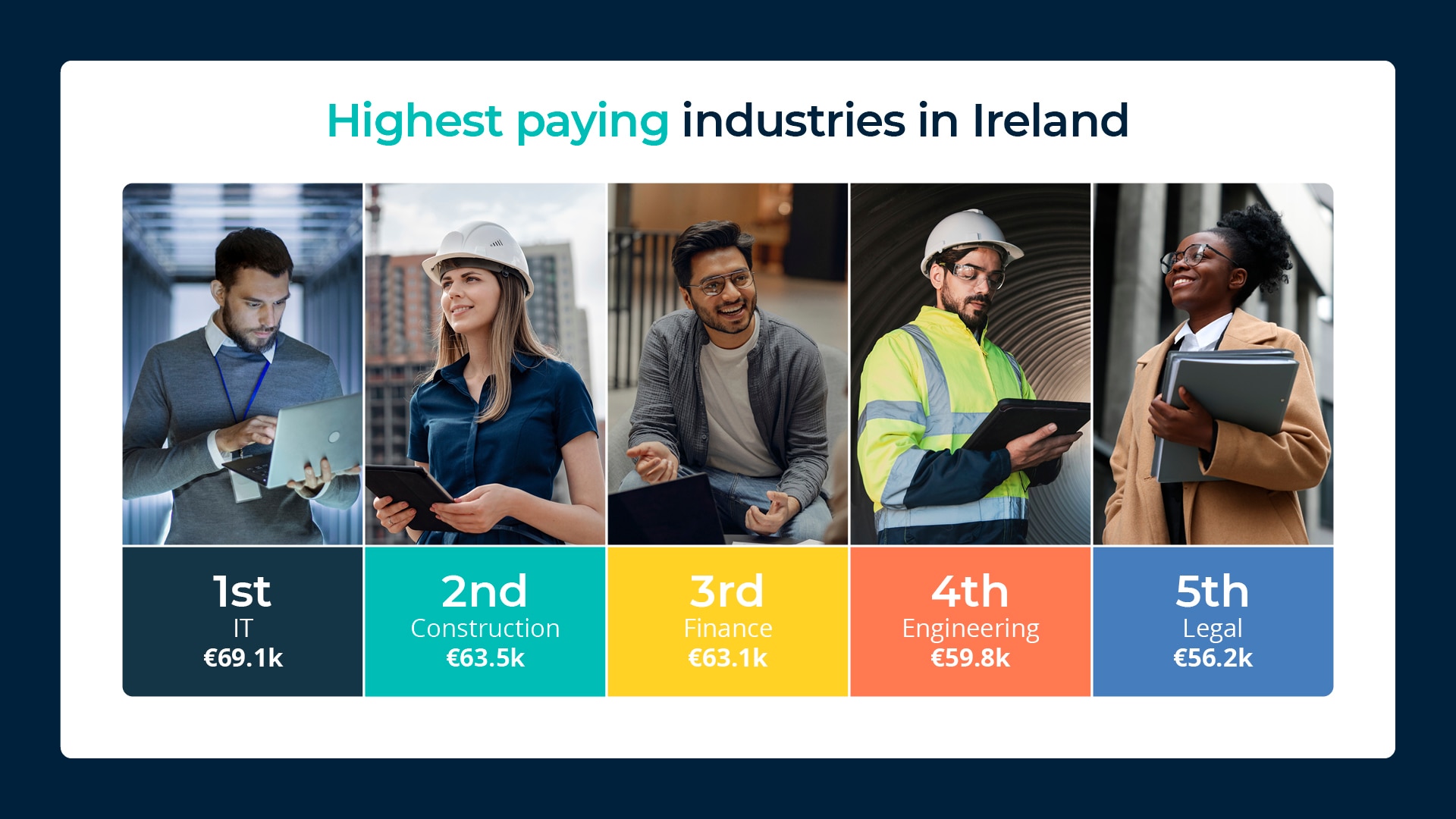
Key industry salaries
Hospitality
The hospitality industry in Ireland remains a vital and in-demand sector, offering an average salary of €31.3k. High-paying roles such as Chef (€35,523) and Chef de Partie (€30,812) highlight the demand for culinary expertise. Other essential positions include Bar Staff (€27,526) and Catering Assistants (€27,449), reflecting the growing need for skilled service professionals.
Meanwhile, Waiters (€27,021) and Baristas (€26,619) continue to play key roles in customer experience, while Hotel Receptionists (€26,603) are crucial for front-of-house operations. The demand for Kitchen Porters/Assistants (€26,533) also reinforces the importance of back-end support roles.
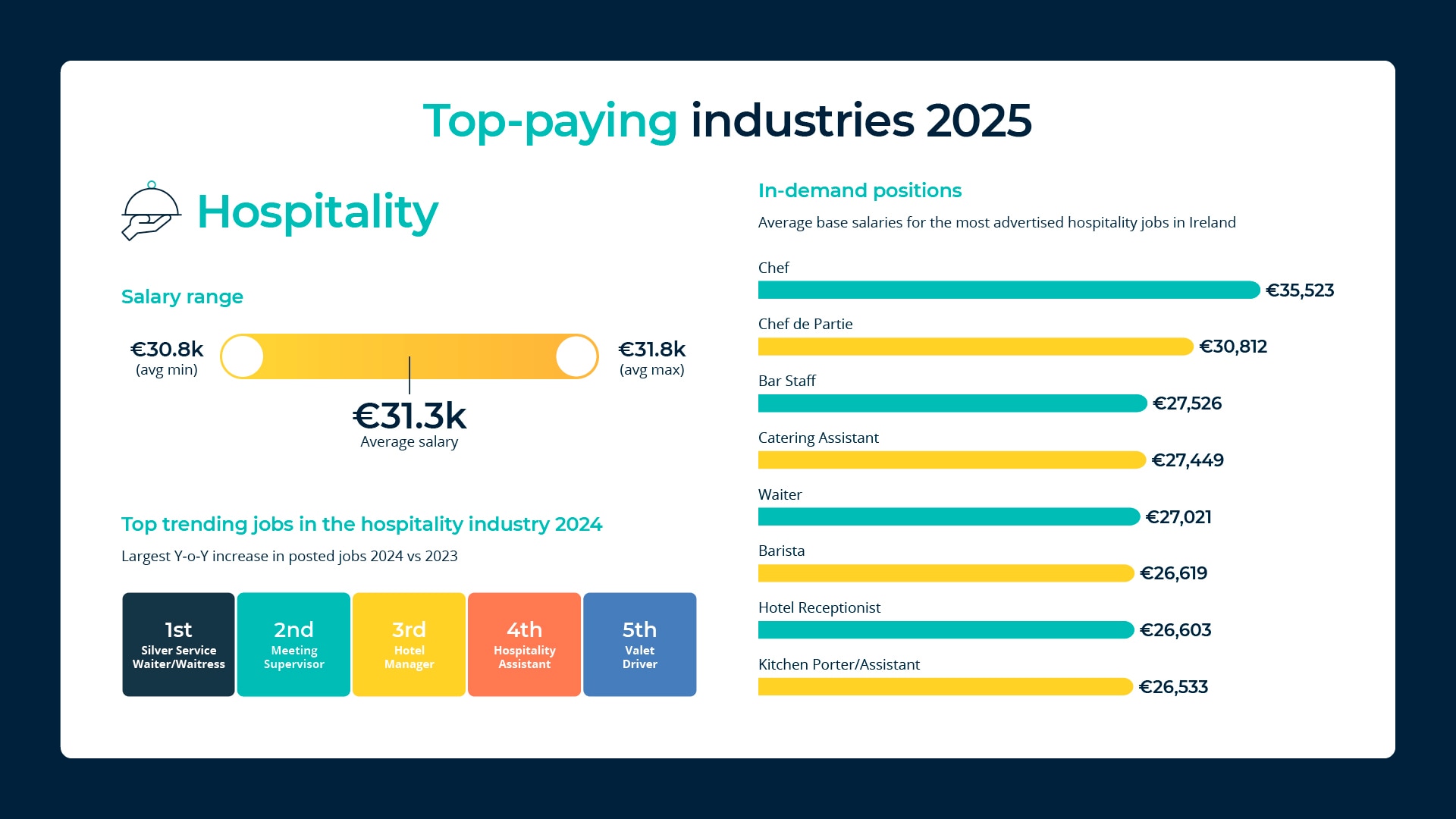
Customer Service
With an average salary of €39.9k, customer service remains a key sector in Ireland. Customer Service Managers (€51,111) earn the highest salaries, reflecting the importance of leadership in enhancing client experiences. Other well-paid roles include Front Office Manager (€37,634) and Parts Advisor (€33,367), with focus on operational and sales support.
Roles such as Service Advisors (€33,328) and Customer Service Representatives (€29,743) remain integral in ensuring seamless customer interactions. Customer Assistants (€25,117) provide essential frontline support across various industries.
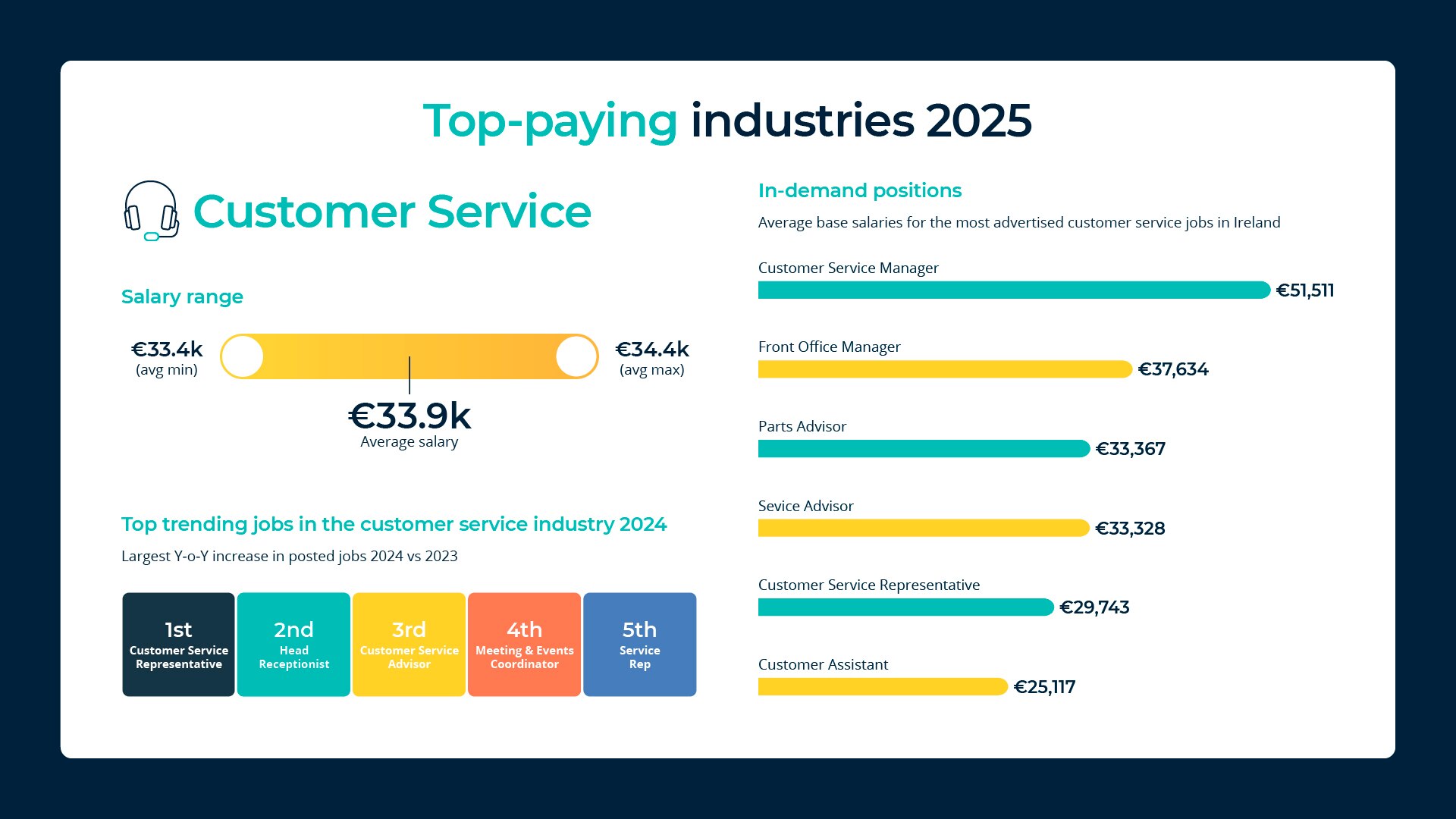
Retail
Retail continues to be a dynamic industry in Ireland, offering an average salary of €37.9k. The highest-paid positions are in pharmacy-related roles, with Supervising Pharmacists (€85,595) and Support Pharmacists (€72,980) leading the sector. Retail Store Managers (€41,64) also earn competitive salaries, reflecting the importance of strong leadership in retail operations.
Other key roles include Visual Merchandisers (€31,808) and Retail Sales Assistants (€28,980), both of which emphasise customer experience and strategic product placement.
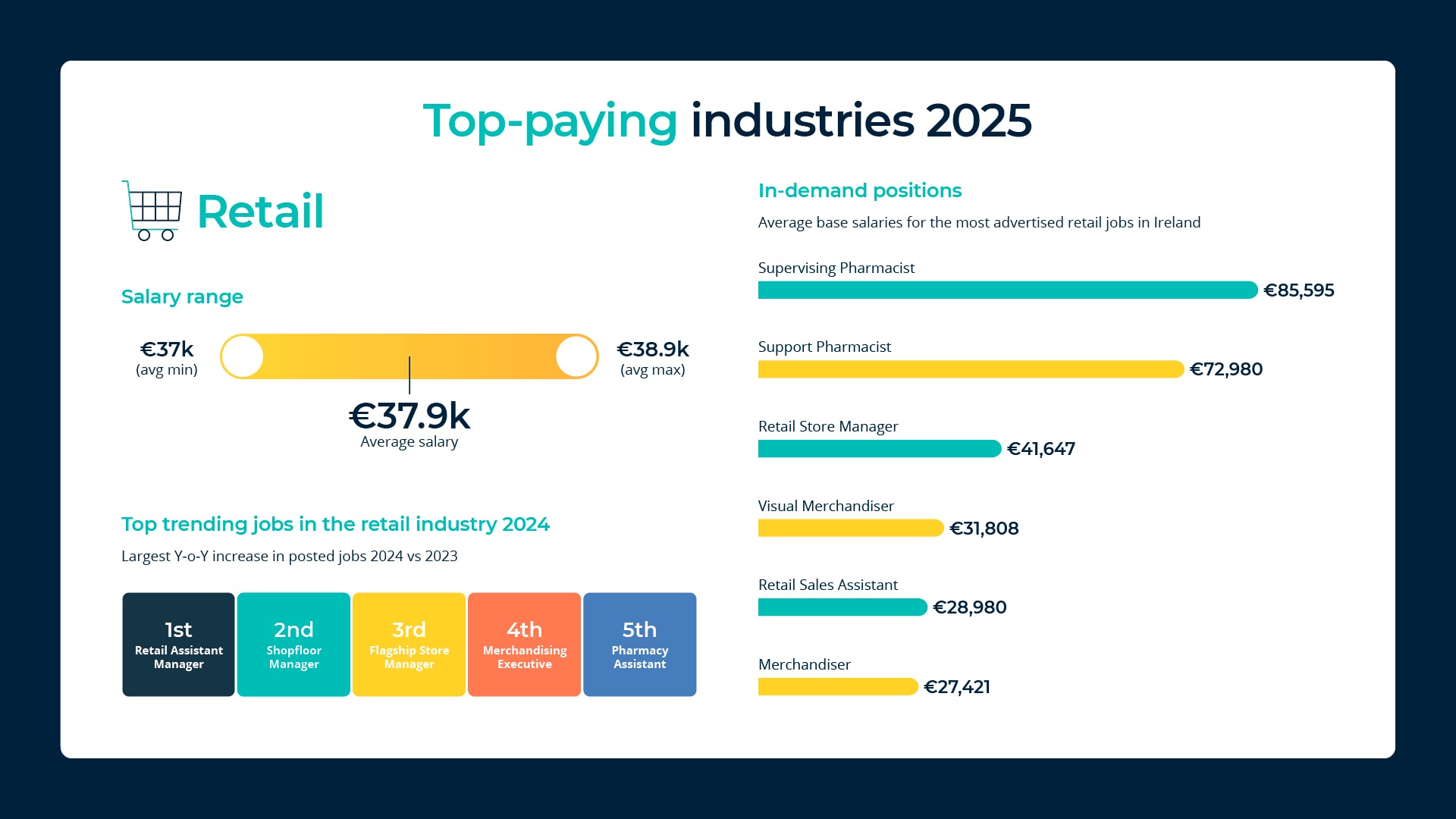
Sales
Sales remains a crucial driver of business growth in Ireland, with an average salary of €42.3k. Sales Managers (€55,672) and Business Development Managers (€54,348) are the highest earners, underscoring the importance of leadership in revenue generation. Other lucrative positions include Account Executives (€43,058) and Sales Executives (€40,760), highlighting the value of client relationship management.
Roles such as Sales Development Representatives (€40,382) and Sales Representatives (€35,728) are essential for expanding customer bases, while Field Sales Representatives (€33,299) contribute to market outreach. Sales Advisors (€30,647) continue to play a critical role in consultative selling.
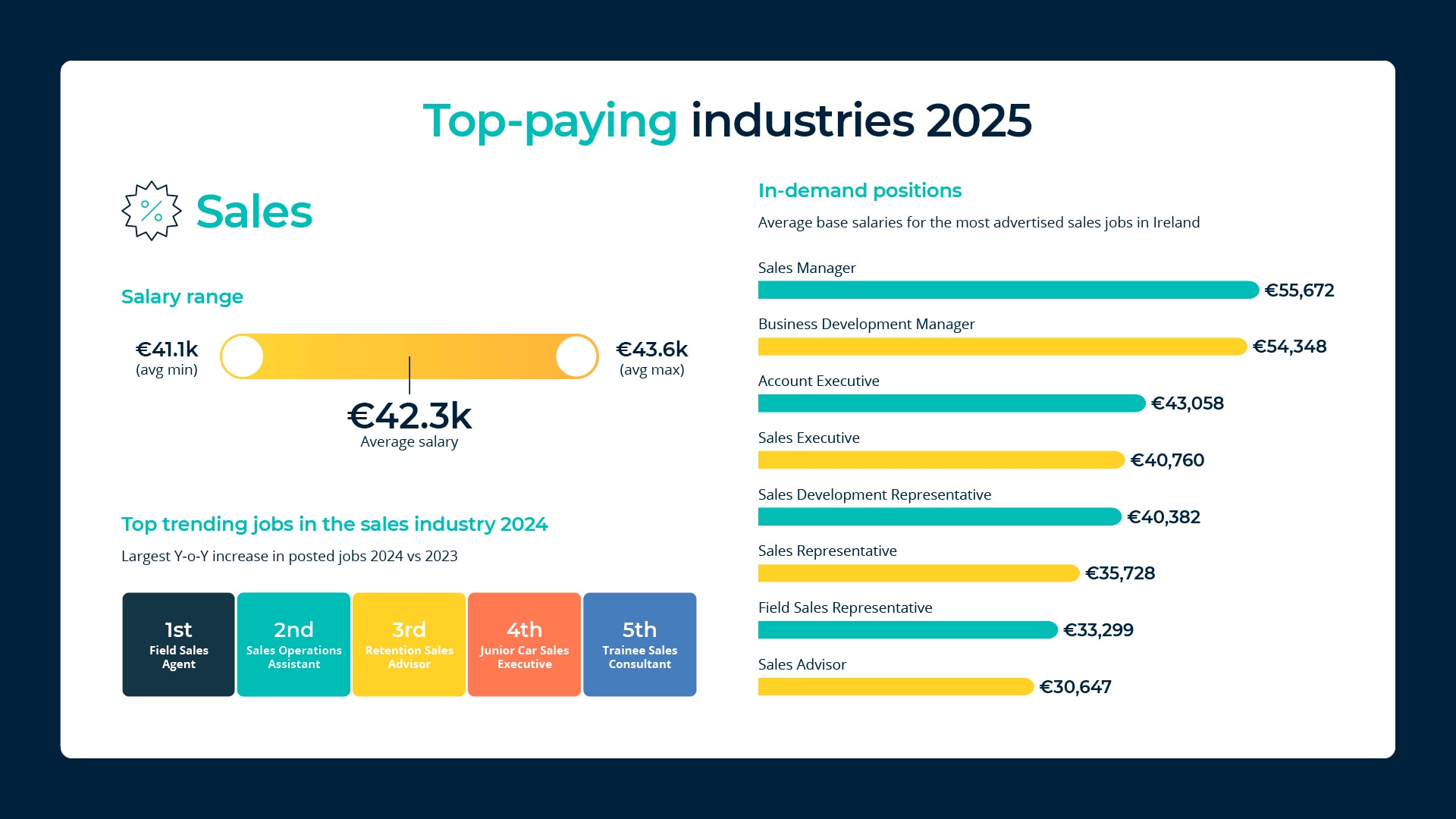
Social Care
The social care sector remains an essential industry in Ireland, offering an average salary of €41.4k. High-paying roles such as Social Care Leaders (€45,459) and Social Care Assistants highlight the importance of skilled professionals in providing support services. Support Workers (€35,098) and Community Support Workers (€33,608) also play crucial roles in delivering care and outreach services.
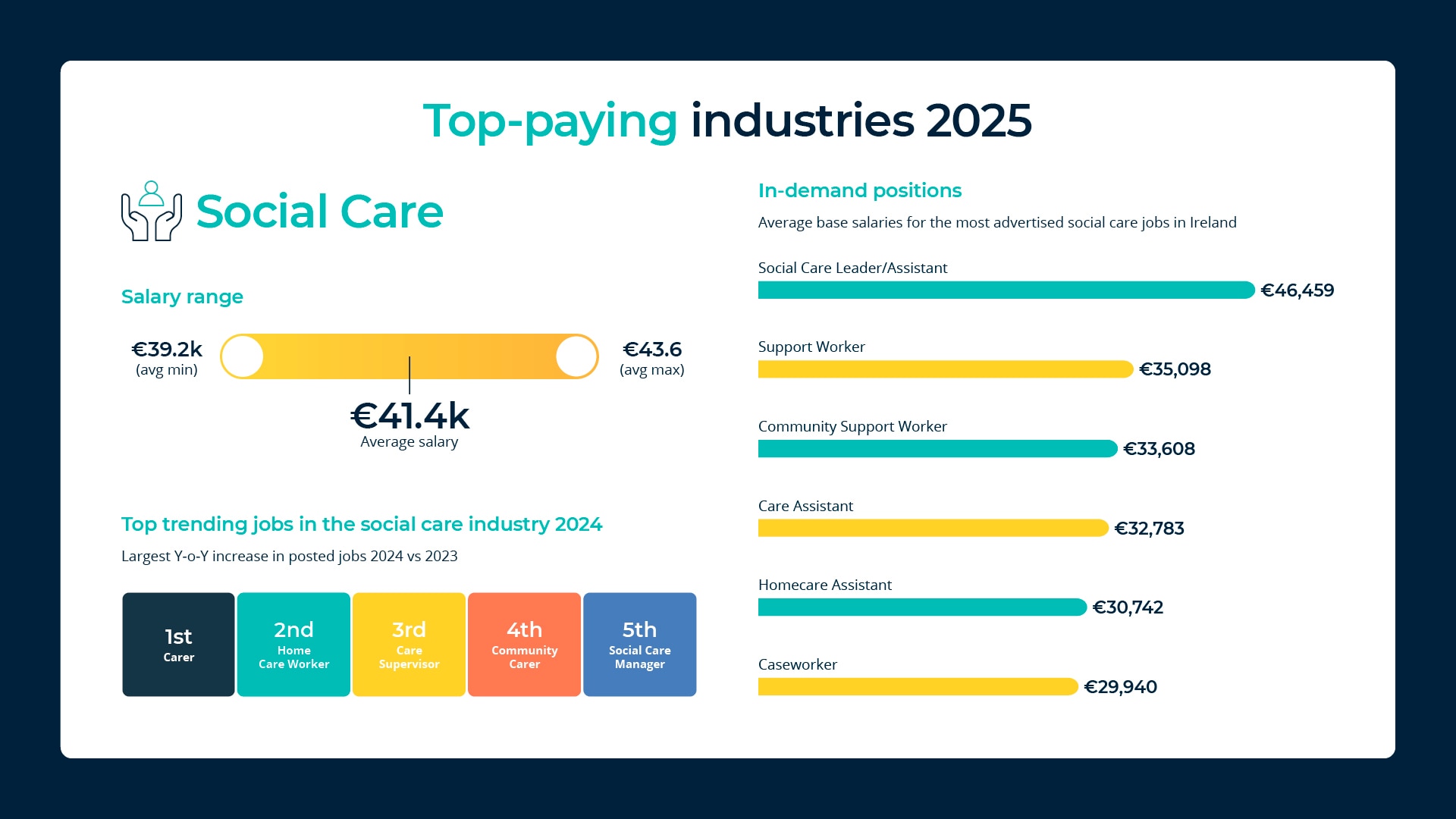
Top workplace benefits of 2025: what jobseekers value most
As competition for talent intensifies, businesses are prioritising attractive benefits to retain and attract employees. According to the latest insights, free parking has emerged as the most sought-after workplace benefit in Ireland, reflecting the ongoing challenges of commuting and the cost of city centre parking.
Following closely, pensions schemes remain a key priority, highlighting employees’ long-term financial security concerns. The cycle-to-work scheme ranks third, emphasising the growing shift toward sustainable and cost-effective commuting options.
Flexible working arrangements, including remote work and flexible hours, take the fourth spot, reinforcing the demand for work-life balance post-pandemic. Finally, career development opportunities round out the top five, showcasing employees’ focus on professional growth and advancement.
These trends demonstrate a shift towards benefits that enhance both financial well-being and work-life balance, reflecting the evolving expectations of the modern workforce.
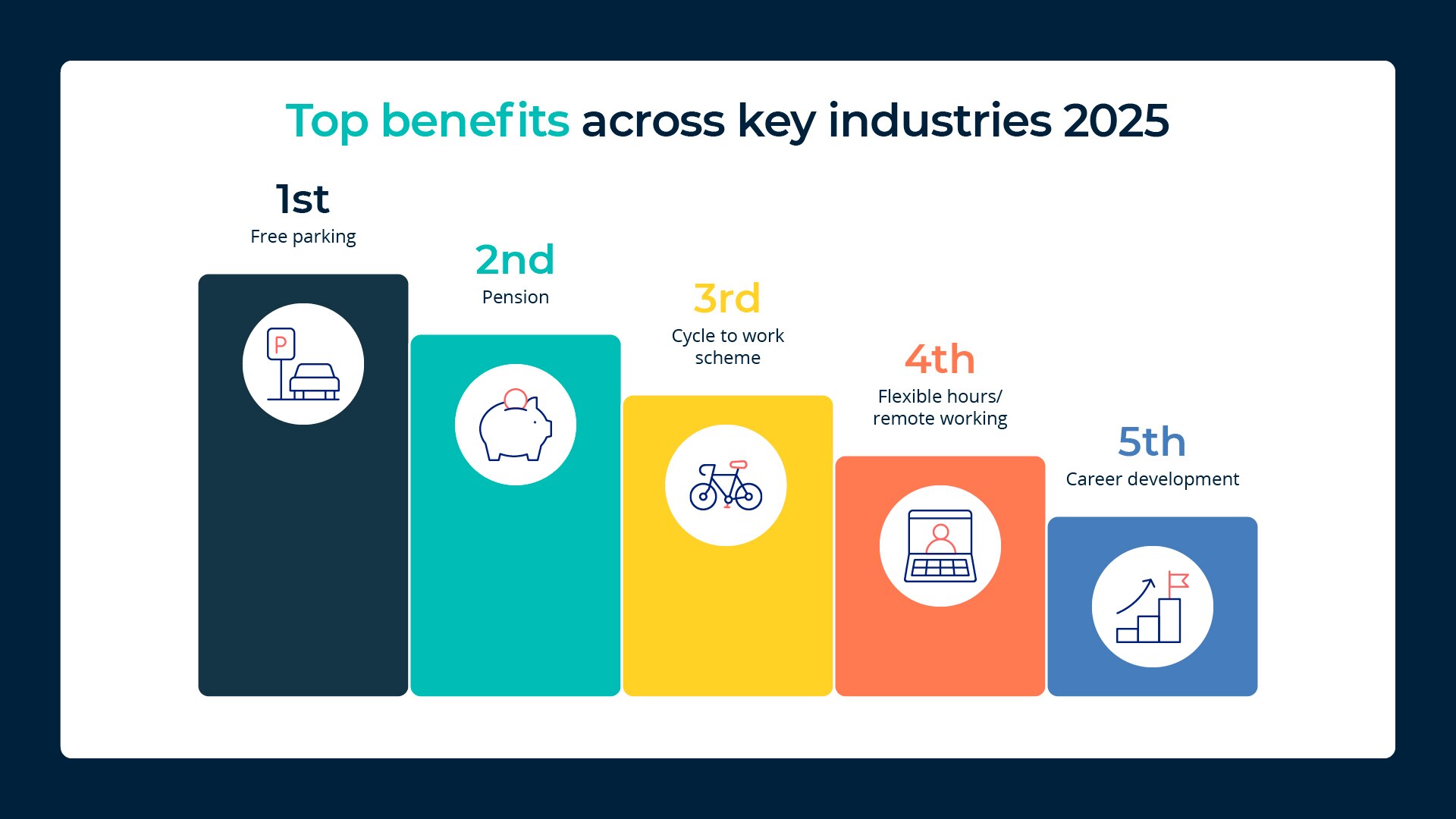
What employers need to do to stay competitive
Building an effective compensation strategy involves planning and attention to detail. While it may seem like a lengthy task, it provides a framework for achieving organisational goals, enhancing employee engagement, and managing budgets. Below are key steps to implement a comprehensive plan:
Align with organisational goals: Your compensation strategy should directly support broader goals like attracting top talent, retaining employees, and improving performance. A clear link between compensation and organisational objectives ensures a focused and strategic approach.
Balance costs and culture: Ensure your strategy is financially sustainable and fits your company culture. Equal pay, budget constraints, and long-term financial goals must be accounted for to maintain trust and stability.
Review roles and market trends: Regularly update job descriptions and analyse market benchmarks using industry reports and salary surveys. Competitive and fair compensation packages help attract and retain compensation packages help attract and retain talent without unnecessary costs.
Engage employees: Gather employee feedback to understand their expectations and identify gaps in current offerings. Involving employees in the process encourages trust and ensures your strategy aligns with workforce needs.
Define and communicate principles: Set clear compensation principles, such as equity, performance-based rewards, and transparency. Open communication about how pay decisions are made builds employee confidence and clarifies pathways for salary increases.
Design a clear structure: Create a framework that includes base salaries, bonuses, benefits, and incentives. Use industry benchmarks to establish salary ranges and ensure equal pay for roles of equal value.
Link performance to pay: Tie compensation to individual and team performance using a robust management system. This approach motivates employees and aligns their efforts with organisational goals.
Monitor, evaluate, and stay compliant: Regularly review your compensation strategy using metrics like turnover rates and employee feedback. Adapt as needed to stay competitive while ensuring compliance with employment laws, including equal pay legislation.
Whether you want to attract and recruit brilliant people, sharpen your hiring strategies, or build your market presence, we’re here with powerful insights and data-backed solutions.


